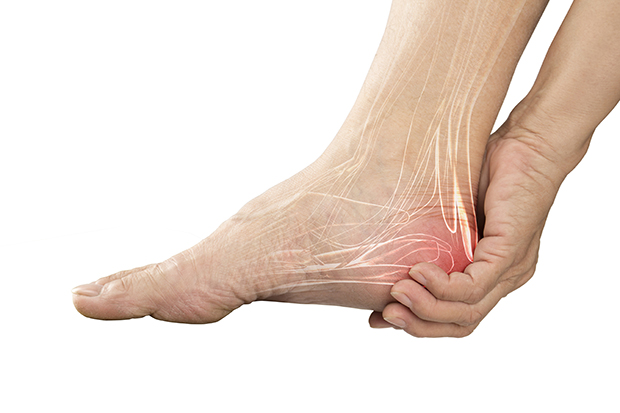
Submitted by Cortese Foot and Ankle Clinic
Heel pain is a very common problem with many different causes. Last month, we discussed some of the causes, which include heel spurs, plantar fasciitis, excessive pronation, and some diseases. Now let’s talk about prevention. It’s always better to prevent foot pain from occurring in the first place rather than treat it after damage has been done.
There are many different steps that can be taken to avoid heel pain and accompanying afflictions.
- Wear shoes that fit! This includes the front, back, and sides. Be sure they have shock-absorbent soles, rigid shanks, and supportive heel counters.
- Prepare properly before exercising. Warm up and do stretching exercises before and after running.
- Pace yourself when you participate in athletic activities. Avoid overuse syndrome by building up time and distance gradually.
- Don’t underestimate your body’s need for rest and good nutrition.
- If you are overweight, losing weight can be very helpful in minimizing pain.
- Wear proper shoes for different sports, avoid wearing worn out shoes, check the heels for wear.
- Use anti-inflammatory medication, exercise and shoe recommendations, taping or strapping, or use of shoe inserts or orthotic devices.
Taping or strapping supports the foot, placing stressed muscles and tendons in a physiologically restful state. Physical therapy may be used in conjunction with such treatments.
- Use a night splint to keep your foot in a 90-degree angle when sleeping or watching television.
- A functional orthotic device may be prescribed for correcting biomechanical imbalance, controlling excessive pronation, and supporting of the ligaments and tendons attaching to the heel bone. It will effectively treat the majority of heel and arch pain without the need for surgery.
Only a relatively few cases of heel pain require more advanced treatments or surgery. If surgery is necessary, it may involve the release of the plantar fascia, removal of a spur, removal of a bursa, or removal of a neuroma or other soft-tissue growth.
Pain in the feet is never normal and should not be ignored. If pain and other symptoms of inflammation — redness, swelling, heat — persist, you should limit normal daily activities and contact a doctor of podiatric medicine. The podiatric physician will examine the area and may perform diagnostic X-rays to rule out problems of the bone, and most importantly, will help you with a treatment plan to get back on your feet!
For more information on any foot or ankle problem, you may contact Cortese Foot and Ankle Clinic at 309-452-3000. Their office is located at 1607 Visa Dr. in Normal.

